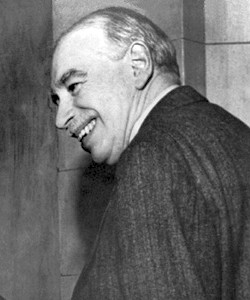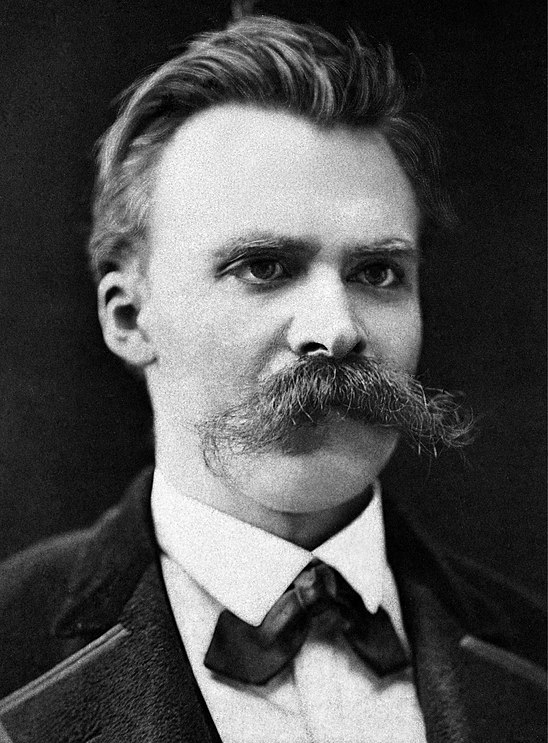 |
| Copyright: epSos.de |
Economics lecture notes
“If you have a lot of money then you can buy any kind of sex you like.” An interesting statement, one which is probably true. If you're feeling libellous, then you could just ask Max Mosley.
It is maintained in our society that money is the root driving force of the world, a thing in itself. Economists would certainly agree. The general rule is that people will never stop spending, because satisfaction can never be achieved – the more you consume, the more you want to consume. This is the premise of the economic problem, and economics is all about how you can solve this problem while keeping everybody relatively happy, or at the very least, employed.
Economists will only talk in terms of human want, they will completely ignore need. Figuratively speaking, the needy have no cash to spend, and are therefore non-entities (but not really, as there are statistics for the economically active unemployed.)
'Need' has no reference point; in Fregian terms, it makes sense but it has no reference within economics. 'Want' makes sense: how much are you prepared to pay for something you want? The statement “I think everybody needs houses” is therefore meaningless in economic terms.
People derive something called utility from spending – a verifiable phenomenon, and therefore it provides a reference point. Consumers will always seek to maximise their utility. Utilitarianism is the idea that everyone left to their own devices will only seek to obtain things that please them, and it treats people as entirely self-contained individuals. It has to assert the latter, or else the first premise wouldn't work. Adam Smith's ideas about the hidden hand of the market are in essence utilitarian – assuming that everyone involved is a sensible, rational human being and knows what it good for them.
David Ricardo – The labour theory of value
Theory: that there was embedded labour power in objects, and this affects their worth. As an example, consider 1 biro versus 1 grand piano – the piano is worth more because more labour has been expended in making the piano than the biro.
Thomas Malthus – the iron law of population.
Theory: population grows exponentially, it is geometric.
Resources, however, are arithmetic i.e. finite in a way, and there is never enough to feed the population. Famine is the only way to bring the population back in to line.
Ricardo + Malthus = Marx – the iron law of wages
Theory: Everyone wants to do a certain job because they've heard it's easy and stress-free but well rewarded (journalist does not seem to fit here, but we'll use it as an example anyway.) If there is suddenly a glut of young, talented people all trying to seek jobs in that industry at the same time, then the employer will have their pick. It then becomes much harder to get a job, and so on. There is a recurring crisis of over production and under consumption. Things are only worth what people are willing to pay for them, and if everyone is unemployed, the price of an object (an apple) is going to go down; wages of those producing the apple are then cut and everyone still can't afford to buy the apple.
Classical economists regarded money as something that was neutral and transparent, and simply a medium for the transmission of value. Frenchman Jean-Baptiste Say believed that 'products were paid for by products' and that the sale of one item in essence allowed a businessman to purchase other things with the profits. John Keynes refuted this and pointed out that the existence of savings accounts meant that Say's Law was completely meaningless.
Thanks to Keynes, modern economists hold a completely different view and believe that money exerts a power on the real world. This power can make people behave in peculiar ways, and is completely de attached from the classical theory of economics and the theories of Adam Smith.
The world economy is described as a “gigantic confidence trick” - taxation only gathers enough money to pay off the interest that the government's debt is building up. In an active capitalist society, that debt can never be paid off. You could always print more money if people are starting to feel the pinch, but then you'll find out that the value of money plummets to the mud like the Germans did in the 1920s. Hyper-inflation was bad for some, but the comedic mental image of workers carrying home stacks of cash in wheelbarrows never gets old for me. The problem lay in that the money that the government printed wasn't backed by gold – Alfred Marshalls quantity theory of money – and it really was only worth the paper it was printed on.
The roaring 20s, by comparison, were the result of deficit spending for WWI. This led to the supply of money expanding – the multiplier/accelerator effect – which in turn led to widespread stock market speculation and rising prices.
The inevitable stock market crash led to the Great Depression in the 1930s - 40s. The government responded to the unemployment crisis by lowering the cost(value?) of money itself and reducing wages. The second world war at the time was good in Keynesian terms as war destroys surplus value and keeps people employed.
John Maynard Keynes
 |
| Cheeky. |
Keynes was an extremely influential modern economist, born in 1883. He wrote the The General Theory of Employment, Interest, and Money and published in in 1936 in the midst of the Great Depression. Time magazine said of Keynes in 1999, “His radical idea that governments should spend money they don't have may have saved capitalism." Again, that relates back to the 'confidence trick' from earlier – spending money that doesn't exist isn't necessarily a bad idea, for reasons that Keynes outlines in his book.
For our seminar, we studied Paul Krugman's interpretation of the text. He defends Keynes from the right-wing pressure groups that initially stopped circulation of the book in America – it was regarded by them as a “leftist tract”, propounding socialism and calling for a large central government and high taxes. The opposite could not be more true – despite writing his book at a time where great poverty was being attributed to the failure of capitalism and socialism could easily be seen as the 'sane' way of dealing with the economy, Keynes was adamant that the failure was down to a small number of preventable technical causes. He saw the problem of mass unemployment as narrow and technical, and therefore thought that the solution could be narrow and technical, too. He denied that total government takeover of the economy could help matters but that instead, governments should just polices to “insure adequate effective demand.” This less intrusive intervention detailed in The General Theory is given by Krugman in the following points:
• Economies can and often do suffer from an overall lack of demand, which leads to involuntary unemployment
• The economy’s automatic tendency to correct shortfalls in demand, if it exists at all, operates slowly and painfully
• Government policies to increase demand, by contrast, can reduce unemployment quickly
• Sometimes increasing the money supply won’t be enough to persuade the private sector to spend more, and government spending must step into the breach
Keynes goes about meticulously detailing every aspect of the current model of economics, mainly to lend credibility to himself so that no-one might accuse him of trying to change something that he doesn't fully understand. It means that as a whole, General Theory is a cumbersome read, but Keynes write in the preface: “The composition of this book has been for the author a long struggle of escape, and so must the reading of it be.”
Krugman says that step by step, Keynes is liberating economists from the confines of the Great Depression, the confines created by classical economics.
The conception of classical economics that Keynes fought so hard to overturn was that of a Say's Law abiding model of a barter economy, where supply automatically creates its own demand because wages and income are immediately spent, not invested. It was impossibly simplistic.
He also attacked the notion that falling wages increase employment, an idea which was popular with other economists at the time.
Something else he did was refute the business cycle theory of boom and bust. Other economists of the day were approaching it in the wrong way and asking the wrong questions, asking about the mechanics inherent in a bust following a boom. Keynes instead identified that a bust embodies mass unemployment, and asked how to create more employment. Other economists were also obsessed with identifying the complex disequilibrium of the business cycle, whereas Keynes made the case that the market can actually operate normally without everyone being employed, that it is in effect a sort of stable equilibrium.
Keynes also laid out the assertion that there is strong irrational element in economic behaviour. He arrived at this conclusion through psychological observation rather than strict interpretation of figures.
The difference between macro- and micro-economics
Microeconomics is a 'bottoms-up' approach to looking at the economy; it will look at the decisions of specific individuals and businesses, whereas macroeconomics is a 'top-down' approach that looks at the decisions of countries and governments. Microeconomics looks at supply and demand and market competition. Macroeconomics will look at things like nation income, unemployment levels and the behaviour of every economically active member as a whole.




